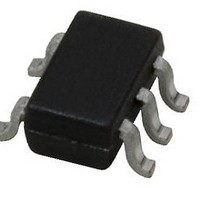NCP512SQ27T1G ON Semiconductor, NCP512SQ27T1G Datasheet - Page 6

NCP512SQ27T1G
Manufacturer Part Number
NCP512SQ27T1G
Description
IC REG LDO LQC 80MA 2.7V SC70-5
Manufacturer
ON Semiconductor
Datasheet
1.NCP512SQ15T1G.pdf
(9 pages)
Specifications of NCP512SQ27T1G
Regulator Topology
Positive Fixed
Voltage - Output
2.7V
Voltage - Input
Up to 6V
Voltage - Dropout (typical)
0.2V @ 80mA
Number Of Regulators
1
Current - Output
80mA (Min)
Operating Temperature
-40°C ~ 85°C
Mounting Type
Surface Mount
Package / Case
SC-70-5, SC-88A, SOT-323-5, SOT-353, 5-TSSOP
Number Of Outputs
1
Polarity
Positive
Input Voltage Max
6 V
Output Voltage
2.7 V
Output Type
Fixed
Dropout Voltage (max)
0.3 V at 80 mA
Output Current
200 mA
Line Regulation
3 mV / V
Load Regulation
0.8 mV / mA
Voltage Regulation Accuracy
2 %
Maximum Operating Temperature
+ 85 C
Mounting Style
SMD/SMT
Minimum Operating Temperature
- 40 C
Lead Free Status / RoHS Status
Lead free / RoHS Compliant
Current - Limit (min)
-
Lead Free Status / Rohs Status
Lead free / RoHS Compliant
Other names
NCP512SQ27T1GOS
Load Regulation
current at a constant temperature.
Dropout Voltage
no longer maintains regulation against further reductions in
input voltage. Measured when the output drops 3.0% below
its nominal. The junction temperature, load current, and
minimum input supply requirements affect the dropout level.
Maximum Power Dissipation
will operate within its specifications.
Quiescent Current
the ground when the LDO operates without a load on its
output: internal IC operation, bias, etc. When the LDO
becomes loaded, this term is called the Ground current. It is
actually the difference between the input current (measured
through the LDO input pin) and the output current.
The change in output voltage for a change in output
The input/output differential at which the regulator output
The maximum total dissipation for which the regulator
The quiescent current is the current which flows through
http://onsemi.com
DEFINITIONS
6
Line Regulation
The measurement is made under conditions of low
dissipation or by using pulse technique such that the average
chip temperature is not significantly affected.
Line Transient Response
is excited with a given slope.
Thermal Protection
the integrated circuit in the event that the maximum junction
temperature is exceeded. When activated at typically 160°C,
the regulator turns off. This feature is provided to prevent
failures from accidental overheating.
Maximum Package Power Dissipation
dissipation level at which the junction temperature reaches
its maximum operating value, i.e. 125°C. Depending on the
ambient power dissipation and thus the maximum available
output current.
The change in output voltage for a change in input voltage.
Typical over and undershoot response when input voltage
Internal thermal shutdown circuitry is provided to protect
The maximum power package dissipation is the power








